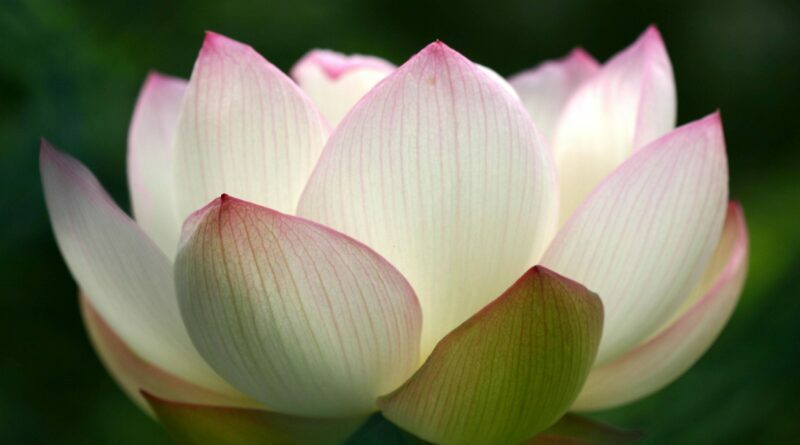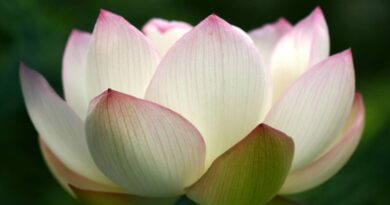TAKE GOOD AIM
Take Good Aim
The Buddha compares the discernment that comes from meditation to the skills of being a good archer. You’re able to shoot long distances, fire accurate shots in rapid succession, and pierce great masses. In other words, you see the long-term results of what you’re doing, or of different possible courses of action, so that you can choose which is going to be the best in the long term. That’s like shooting great distances. Firing accurate shots in rapid succession means being very clear about what’s going on in the mind, moment to moment, and especially clear about when suffering is arising there, how it’s arising, and how it can be brought to an end. Because the mind can change so quickly, you want to be able to see it very quickly. Piercing great masses means piercing the mass of ignorance.
Now, in general, to be a good archer, you have to have a really good, concentrated mind. For your aim to be good, you have to be able to stare at the target for long periods of time without wavering, without blinking. It’s similar to the quality of mind that makes a good potter. I was watching a potter one time in Thailand as he made a pot on a wheel. I said to him, “You must have good concentration.” He said, “Your mind has to be constant.” In other words, you can’t waver.
This is one of the reasons why we’re working on concentration—to develop that steady, constant, unwavering quality of focus that enables our discernment to do its work. And what is the work of discernment? To understand our cravings. As we chanted just now, the mind is usually a slave to craving. We’re slaves to cravings because we don’t understand them. We haven’t pierced them. We haven’t watched them quickly or carefully as they change. So, often, we misunderstand our own cravings.
Sometimes we become a person we don’t even recognize. A certain craving takes over and, as the Buddha says, craving leads to becoming. And what is becoming? It’s the act of creating an identity in a certain world of experience or taking on an identity based on your desires. The identity here is either the “you” who’s going to enjoy the results of the desire, or the “you” who’s going to be able to produce those results. This is why the Buddha has us ask every day, “Days and nights fly past, fly past. What am I becoming right now?” Whatever you’re becoming, it grows out of your desires and your cravings. And if you don’t know them, then even what “you are” flies out of your control.
Sometimes people come, asking, “Who am I?” That’s the big spiritual question, we’re told, or “What’s the purpose of life? What’s the meaning of life?” And the Buddhist answer is, basically, you are what you define yourself to be, and your purpose in life is what you decide it’s going to be. There’s no overarching purpose to the universe. Remember the Buddha’s vision of the universe—it just keeps going through many cycles, around and around and around. It goes nowhere. And the beings within the universe go around and around, too. They wander here and there, but keep coming back and then going on and keep coming back again. If they don’t get out, they don’t go anywhere, either. And as for what you are, that keeps changing in line with your desires.
Now, some people find this scary, but the Buddha saw it as an opportunity. You can define your desires in such a way that you give your own meaning to your life, a meaning that’s good. If there were an overall purpose to the universe, you’d have to serve that purpose regardless of what that purpose meant in terms of your health, well-being, and happiness. The question of putting an end to your suffering would have to be put off to the side, because you’d have to serve some other purpose. But with the universe being meaningless, you can give meaning to your life by saying, “I’m going to put an end to suffering.” Then you can define yourself around that. Make that your desire, because it’s a noble desire.
You’ll find, of course, that some members of the committee of the mind have lots of other desires as well, most of which are based on very strange ideas of what’s possible in the world. Now, you can’t simply make up your mind about the way things are going to be. You can’t make up your mind, say, that you’re going to be a sex addict and have perfect happiness, too. The universe doesn’t work that way. Your mind doesn’t work that way. This is why we have the teachings on the principles of action—to remind ourselves, “This is how things work.” If you act on this kind of desire or this kind of motivation, it’s going to have these kinds of results. If you have that kind of intention and act on it, it’ll have those kinds of results. The Buddha lays it all out. And then says it’s up to us: Which do you want to choose?
The other thing he lays out is what’s possible. In the example of his life, he shows that it is possible to put an end to suffering, and you can do it in a way that doesn’t harm anyone else. In fact, when you look at his life, you can see that he created a lot of good for the world. He set out the Dhamma to show people how they can put an end to their own suffering. He created a monastic order so that this skill could be taught from generation to generation as a living apprenticeship. He did a lot of work to show us: This is what human beings can do.
So it’s good that we keep that in mind, because the rest of the world wants to close off a lot of options—and not only the world outside of the Dhamma, but also the world of what passes for Buddhism here in the West. A lot of the teachers are trying to close off the options that the Buddha opened up. Fortunately, you can’t close them. For people who are looking for them, they’re still there.
And you have the opportunity to define yourself. What are you becoming right now? When you make up your mind that you want to put an end to suffering, you have to deal with the other “yous” in there that are created around different desires. This is why we have to fire shots in rapid succession and be accurate, because our cravings are very subtle and quick.
All too often you may think you desire one thing, or have a craving for one thing, but then when you get it, you realize that’s not what you wanted. If you’re lusting for a particular person, say, you think that the person is the object of your desire. But if you get the person, things often don’t go the way you thought they would. “This is not the person I thought I was getting. This is not the story I was imagining.” So you have to look back again. What was it that you were actually desiring? What was your craving really aimed at? These things shift very quickly—the narrative you had, the fantasies you had. What exactly got you interested? What was the hook? A perception? A feeling? How did they get associated with that person?
The same with anger: You’re angry because things are a certain way and you want them to change. Well, suppose you actually got them to change. You might find that that doesn’t really satisfy you. There was something else that you wanted. And so, here you are, being defined by your desires and you don’t even know what your desires are aimed at or where they actually lead.
So we get the mind really quiet to see these shifts in the desire. Ajaan Maha Boowa talks about this. He contemplated the foulness of the body as a way of overcoming lust. He got so that he was really quick at it. But then he realized that the problem wasn’t with the object. There was something in his mind that liked the perception of beauty. The problem wasn’t the body of this person or that person out there. It was his being hooked on the perception of beauty, something totally internal. Think about this for a minute. We create lots of havoc, not only in our own lives, but also in the lives of others, simply because we don’t even know what our desires are. We think we want something and we find out, “Well, that’s not what I want,” and we want to throw it away. We barge through life like this, creating huge messes.
So getting to know your own desires and gaining some control over them requires sitting down very quietly with a mind that’s steady and solid, and looking at what you really want in life. You’ve got the choice. Choose your desires well so that you create good becomings. Ultimately, of course, as the Buddha said, the best thing to do is to go beyond becoming this person or becoming that person. With arahants, as he said, you can’t define them because people define themselves around their desires and their attachments, whereas someone who has no desires, no attachments—because they’ve found true happiness—can’t be defined. As far as they’re concerned, the question of who they are is a non-question. The question of what happiness can be found in the context of worlds is a non-question. And as for purpose in life, they’ve achieved that purpose. They have no further purposes for their own sake. Their only remaining purposes center on helping others in their quest for their highest purpose.
We’re not there yet. We’re still on the path, but the good news is that we get to choose our purpose. The bad news is we get to choose our purpose. In other words, if we’re really sloppy in our choices: As they say, be careful what you want because you might get it. So you want to train yourself, both in terms of the concentration that sees things steadily, and the discernment that shoots great distances: seeing clearly that “if I choose this course of action, this is where it’s really going to go.” This is the discernment that helps to get you past the usual muddled perceptions where you think, “Well, I think I might want this person,” or, “I think I want this situation,” and you try to get it and it doesn’t turn out to be what you thought it was. Or it was what you thought it was, but you really had other ideas in mind. You were actually fixated on something else.
In this way, the ability to fire shots in rapid succession actually connects with that ability to shoot great distances, and to pierce great masses. You break through your ignorance so that you see the long-term results of quick changes in the mind.
And you clean up your own life. You give it a good direction and you stop making a mess of other people’s lives. This is why this is a good path. It’s good—not only for you, but also for the people around you—that you’re following this path. So try to take advantage of the freedom you have. You get to define yourself. You get to define the purpose of your life. Keep the Buddha’s options in mind as to what the possibilities are and make the best choices you can.



